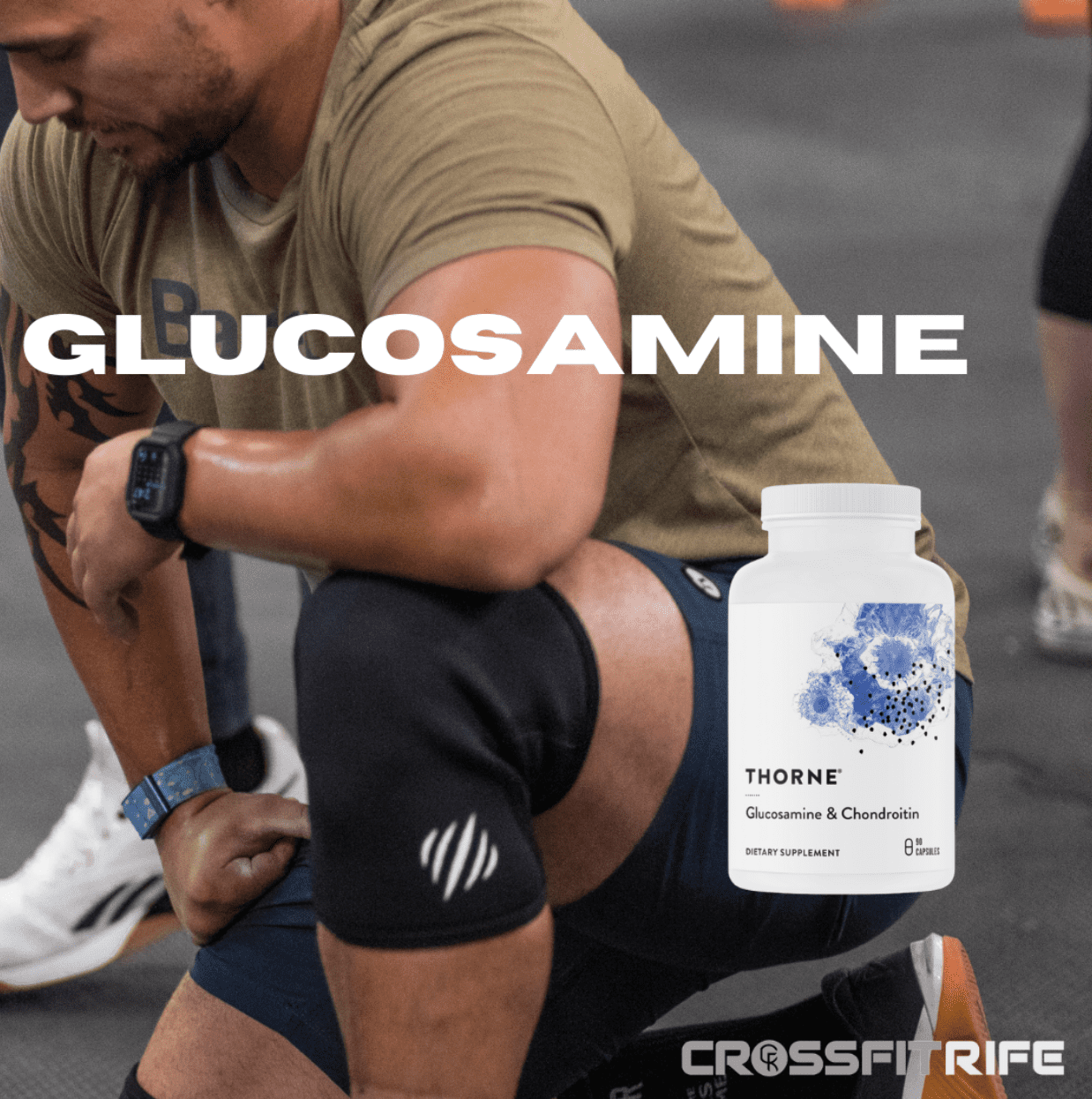Glucosamine is a natural substance that is found in the human body. It is a type of amino sugar that is produced by the body and is used to form and repair cartilage, a flexible tissue that cushions the joints. Glucosamine is found in high concentrations in the fluid that surrounds the joints and in the connective tissue of the skin, tendons, and ligaments.
Effects of Glucosamine in Aging Populations
There is some evidence to suggest that supplementing with glucosamine may be beneficial for people who engage in high-impact activities such as CrossFit training or other HIIT prograams that involve a combination of cardio and strength training exercises that can put a lot of strain on the joints, especially the knees, hips, and shoulders. With poor technique or excessive training volume, this strain can lead to wear and tear on the cartilage, resulting in pain and inflammation.
Understanding Potential Glucosamine Deficiency
To determine if someone is deficient in glucosamine or if supplementation would be beneficial, it is recommended to consult a healthcare professional. They can perform a physical examination, review your medical history and symptoms, and possibly order laboratory tests to assess your glucosamine levels and determine if supplementation is necessary.
Common symptoms of glucosamine deficiency include joint pain, stiffness, and inflammation, especially in individuals with conditions such as osteoarthritis. However, these symptoms can be caused by other factors as well, so a proper evaluation by a healthcare professional is necessary to determine the cause.
It is important to keep in mind that while glucosamine supplementation has been shown to be effective in some individuals, it may not be necessary or beneficial for everyone. A healthcare professional can help determine if glucosamine supplementation is right for you.
How Glucosamine can Improve Joint Health
Some studies have shown that taking glucosamine supplements may help to reduce joint pain and improve mobility in people with osteoarthritis, a degenerative joint disease that is characterized by the breakdown of cartilage. It is thought that glucosamine may work by stimulating the production of new cartilage and reducing inflammation in the joints.
There is also some evidence to suggest that glucosamine may be beneficial in the repair of microtrauma to the joints, which can lead to inflammation and pain. By taking glucosamine supplements, it may be possible to reduce the inflammation and repair the damage caused by the microtrauma, leading to improved joint health and performance.
Simple ways to get adequate glucosamine
Here are some simple ways to get adequate glucosamine for athletes training crossfit:
- Supplements: Glucosamine supplements are widely available in the form of pills, tablets, or powders, and can be easily incorporated into a daily routine.
- Diet: Glucosamine can be found in small amounts in certain foods such as shellfish, but it is difficult to consume enough through diet alone to have a significant impact.
- Glucosamine-enhanced products: There are various products such as joint support drinks, energy bars, and functional foods that are enriched with glucosamine to help support joint health.
What should a solid regimine look like?
Whether it is necessary to continue taking glucosamine over extended periods of time depends on individual needs and circumstances. Some individuals may find relief from their symptoms after taking glucosamine for a short period of time, while others may need to continue taking it long-term to maintain the benefits. A healthcare professional can help determine the appropriate duration of glucosamine supplementation for an individual.
As with any supplement, there may be potential negative side effects associated with taking glucosamine. The most commonly reported side effects include nausea, heartburn, indigestion, and diarrhea. In rare cases, more serious side effects such as skin rashes, hives, or difficulty breathing have been reported.
It is important to remember that supplements are not regulated by the FDA in the same way that medications are, and the quality and composition of supplements can vary widely.
It is important to note that while glucosamine supplements may be beneficial for some people, they may not be effective for everyone. It is always a good idea to speak with your coach or healthcare professional before starting any new supplement regimen. Additionally, it is important to address your nutrition and sleep regime as a the primary strategy and to engage in intelligent training to support overall joint health.






